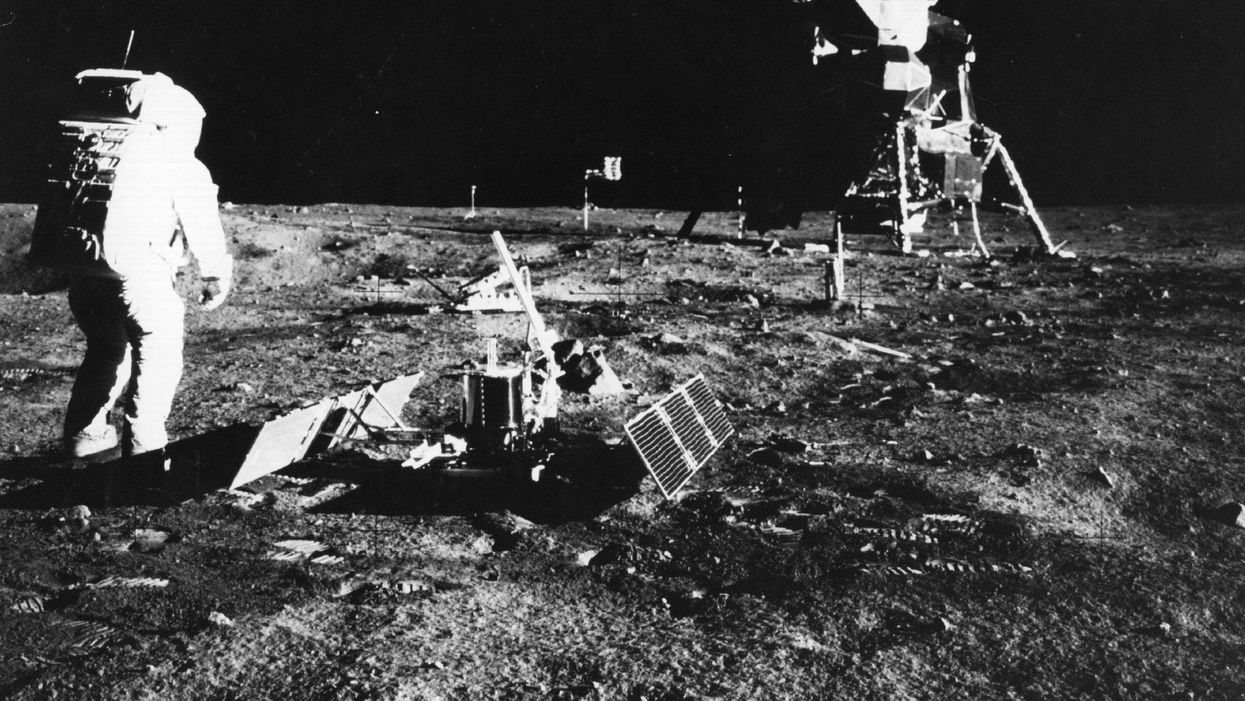Byrd is CEO of Invest America and serves on the Leadership Now Project’s steering committee.
"We choose to go to the moon. We choose to go to the moon in this decade and do the other things, not because they are easy, but because they are hard."
John F. Kennedy
Rice University, 1962
President Kennedy's iconic Texas speech formalized our national commitment to space innovation and defeating communism. Listeners came away from that moment focused on "how." How will we reach the moon by 1970? How can we beat the Soviet Union? How do we keep focused in an era with so many competing civic and national security priorities?
That one hard thing – reaching a cold, shiny, far-away rock – is rightly history's focal point. My read of that moment is that Kennedy's admonition to reach the moon was both a clear goal and a beautiful metaphor. America's greatness always lies in our exploration and mastering of "the other things."
In the early 1960s, those other things included throwing off the yoke of American apartheid; solving malnutrition and poverty; squaring post-World War II industrial growth with worker rights, and mastering low-level international skirmishes while avoiding nuclear conflagration.
Today's problem set is just as tough. Navigating a tricky inflation economy; adapting to Covid life; managing culture wars plaguing our national conversations; war drums in Eastern Europe; tension with Asia. Next to — and many of us think above – these challenges is our hardest current problem: preserving and protecting our core democracy in the face of rising authoritarian tendencies.
Where I live, New York, a group of committed leaders is focused on elevating democracy issues right here at home. Unite NY was launched after the 2016 election by Martin Babinec, a long-time reform advocate and founder of the cloud-based HR services company TriNet. The group built its platform for New York around important technical fixes and reforms that are difficult to implement in our hyper-polarized political environment. Its agenda is nonpartisan common sense, and would do a lot to push democracy forward for the Empire State's 19 million citizens. These include:
- Advocating for open primaries.
- Allowing citizen-led referendums.
- Expanding and making permanent voting at home.
- Transforming party-controlled election commissions.
- Reform anti-competitive ballot access laws.
We democracy reformers are used to the joy and frustration of explaining why this bouquet of laws and rule changes is vital to a smooth-running society. The passion really emerges from the Republican and Democratic parties, who predictably rise up to oppose any and all changes brought forward.
Today, Unite NY has inspired the two-party duopoly's ire by attempting to secure a nominating ballot line for its candidates to run in the 2022 election – including fielding candidates for governor and lieutenant governor. Their nominees all lean into Unite NY's democracy reform agenda.
Every step of the way, the political status quo has made the process harder for all independent parties. In 2020, then-Gov. Andrew Cuomo used a ovid relief bill to increase the signature threshold for those seeking ballot lines in New York from 15,000 to 45,000. Folded into that bill was the requirement to gather at least 500 signatures from a majority of the state's congressional districts, as well as the provision that increased the vote total from 50,000 votes to 130,000 or 2 percent of the vote total for existing parties to maintain a ballot line after the next election cycle.
Unite NY has been challenged at every turn by legislative and political machinery controlled by the two parties. In this election cycle, petition gathering was hampered by the gerrymandered state Senate and congressional district lines. A New York appeals court judge threw out the original post-census map. New congressional lines were approved in late May – just 10 days before the final signature due date. Immediately, opponents of reform sent challenges to the state Board of Elections seeking to invalidate the group's nominating petitions. This struggle is undecided, may continue over the next several weeks and could eventually be decided by the courts.
By seeking a place on the ballot, these democracy reformers come to the table with a very important agenda. Crosspartisan reforms and more choice are vital to opening democracy avenues for all citizens – whether they be upstate or downstate, Republican, Democrat or independent. Victory by the status quo – pushing them off the ballot – means true democracy reform will be once again kicked down the road.
The promise and necessity of Unite NY compel us to keep these too-hard “other things” on the front burner. This is more than just an idea. It is our well-deserved legacy. Instead of trying to snuff out these reform efforts, political forces on the right and left in New York should be working to elevate, support and maybe even join them.


















 Senate Committee on Commerce, Science, and Transportation ranking member Sen. Maria Cantwell (D-WA) (R) questions witnesses during a hearing in the Russell Senate Office Building on Capitol Hill on February 10, 2026 in Washington, DC. The hearing explored the proposed $3.5 billion acquisition of Tegna Inc. by Nexstar Media Group, which would create the largest regional TV station operator in the United States. (Photo by Chip Somodevilla/Getty Images)
Senate Committee on Commerce, Science, and Transportation ranking member Sen. Maria Cantwell (D-WA) (R) questions witnesses during a hearing in the Russell Senate Office Building on Capitol Hill on February 10, 2026 in Washington, DC. The hearing explored the proposed $3.5 billion acquisition of Tegna Inc. by Nexstar Media Group, which would create the largest regional TV station operator in the United States. (Photo by Chip Somodevilla/Getty Images)
